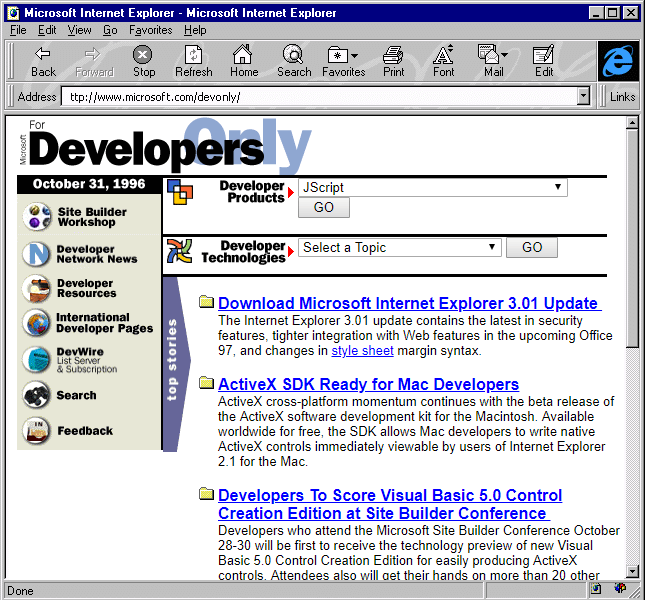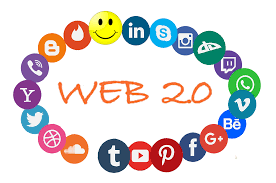Web 3.0: the future of the internet and how It will affect your business
Web 3.0 will be about data sovereignty, not about data control; about the potential to build decentralized applications, and not about the current regulation. In a lot of ways these changes are already upon us, and it going to change the way we do business on the internet. Welcome to the web for the users!

The Internet is more than just a conduit for information; it's an open forum for sharing unique ideas, concepts and products with people, companies and even governments all over the world.
It has certainly shaped our lives in many positive ways and, for most people, it has become a critical part of everyday life.
As technological advances continue to push the envelope, a new version of the Internet better known as Web 3.0 is on the horizon and it promises to focus more on users.
This article explores the next stage of the Internet's development, Web 3.0, and most importantly, its implication for businesses.
What is Web 3.0
The buzzword, Web 3.0, refers to the next generation of web development, or the evolution of the Internet to a more semantic, data-driven style of online experience.
This means that instead of requiring users to browse through pages one at a time and search for keywords, the web will be structured so that users can query for facts directly and receive an answer more conversationally.
Web 3.0 is powered by blockchain technology and Its goal is to allow users to control and monetize their data, as well as have an equal opportunity to contribute to the network.
The blockchain is one of the most revolutionary technologies of this century. It’s a distributed ledger that’s secured through cryptography and it allows users to transact with each other without a central administrator.
The vision for a web 3.0 is one in which computers and people seamlessly interact with each other and share information on a scale that's never been seen before.
In this system, you would own your own identity, data, and digital assets—rather than having them owned by centralized entities like Facebook or Google.
The evolution of the web
The evolution of the web has been pretty amazing. Since its inception in 1989, the internet has been changing. We've seen it grow from a simple messaging program to a global communication platform that has revolutionized how we conduct business and communicate with one another.
Web 1.0 - (1989)

This is the first generation of the web when websites were designed to convey information simply.
In the early days, websites were little more than online brochures that served as digital business cards for companies.
Their main purpose was to display information — but not allow user interaction, personalization, or content sharing.
At that time, only the company could update and manage the site’s content, making it static and one-sided.
The only way to communicate with a website was to fill out a form and wait for a response through email or over the phone.
The internet was still new and most people were still learning how to use it.
Web 2.0 - (2004)

Web 2.0 is the second version of the internet, which came into use around 2004.
It's characterized by user-generated content and applications that can be shared with others, as opposed to Web 1.0, which was largely static pages created by web developers that were not hosted on a network.
The most important characteristic of web 2.0 is that it enables users to interact with each other in real-time over the internet through blogs, forums, wikis, social networking sites such as Facebook or Twitter, collaborative software like Google Drive and Microsoft Office 365 (which allows people from all over the world to work on projects together).
Features of Web 3.0
Web 3.0 provides an immersive and automatic browsing experience, which is made possible by the following features:
- Semantic web: It's designed to be intuitive and self-updating to provide a more personal experience for the user. The semantic web can do more than just suggest websites that might be of interest to the user based on their previous browsing history; it can make decisions and act on behalf of the user as a personal shopper or travel agent.
For example, The web will be able to know what you want for dinner before you do, but also know that you're not interested in seafood because you're allergic. It can remember your schedule and spend your money for you in places where it knows your budget is flexible. - Self-updating and self-organizing content: Websites are capable of adding new content if it is relevant to exist content, and they can reorganize themselves based on user preferences.
Take, for instance, if a user enters "snowboarding" as a search term, the website will automatically add pages that relate to snowboarding and move them closer to the homepage. - Intelligent software agents: When you browse the web, you are accompanied by intelligent software agents (also called bots) that act on your behalf as personal shoppers or travel agents. These bots analyze your browsing patterns and help you find useful information faster and more efficiently.
- Information is decentralized (no more middlemen): Web 3.0 eliminates the need for middlemen or intermediaries to get what you need online.
It facilitates peer-to-peer transactions and data sharing so that you can connect directly with whoever you want to get whatever result you're looking for—without having to go through a middleman. - Increased privacy and anonymity: Web 3.0 will allow users more control over the information they share. You don't have to worry about being tracked when using Web 3.0—it doesn't collect any data from your browsing habits, so there's no way for companies or governments to target advertisements or other content you are using on the internet.
How Will Web 3.0 Affect Your Business?
As with every great technological advance, there are both opportunities and risks involved with Web 3.0. Here are some possible scenarios in which your business could be affected by Web 3.0:
Opportunities
- Precision targeting: More targeted ad placement for improved marketing results.
- Smart contracts will automate payments and many other business processes, saving millions of dollars in the process.
- Analytics provided by blockchain networks will save time normally spent on data gathering and interpretation.
- The blockchain platform can handle complex transactions without requiring middlemen who charge fees for their services.
- They will give businesses more opportunities to reach out directly to customers without being censored by social media giants like Facebook and Twitter.
Risks
- Reputational risks in the case of data leaks and unauthorized access to sensitive information.
- Financial losses due to the theft of funds.
- Unauthorized access to critical systems can be destructive.
Final Thought
The web will probably be quite different in just a few years, and as we move into this entirely new playing field, it will be interesting to see what changes take place.
Web 2.0 allowed businesses to create a truly digital presence, both on the web and in mobile apps.
Web 3.0, however, will significantly transform businesses into networks of collaboration and knowledge that are as easy to navigate for consumers as they are for businesses.